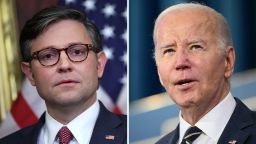The 2024 election promises to be a media maelstrom, a captivating circus where political strategies collide with the insatiable appetite of a 24/7 news cycle. How will the press cover this high-stakes drama, and what can we expect in the media landscape leading up to and during the election?
Amplifying the Spectacle:
Expect the media to treat the election as a grand sporting event, with daily polls, pundit predictions, and breathless updates on campaign trail gaffes and triumphs. Social media will be the echo chamber, amplifying soundbites and controversies, shaping perceptions, and potentially drowning out nuanced discussions on key issues.
The Rise of Alternative Narratives:
Traditional media outlets will face increasing competition from alternative news sources, blogs, and social media influencers. This fragmented landscape can fuel polarization, with people consuming information tailored to their existing biases and creating filter bubbles that hinder exposure to diverse perspectives.
The Challenge of Fact-Checking:
In the age of misinformation and “fake news,” the media will face a crucial challenge: fact-checking claims and combating disinformation campaigns. With deepfakes and manipulated videos becoming increasingly sophisticated, distinguishing truth from fiction will require critical thinking and skepticism from both journalists and consumers.
The Balancing Act:
Finding the right balance between holding candidates accountable and sensationalizing the race will be a delicate dance for the media. Overfocusing on negativity and personality clashes can overshadow substantive discussions on policy and vision. However, failing to scrutinize candidates’ claims and actions can undermine the democratic process.
The Role of Investigative Journalism:
In-depth investigative reporting will be more crucial than ever. Exposing corruption, uncovering hidden agendas, and shedding light on policy implications will help voters make informed decisions beyond the daily media spectacle.
Beyond the Horse Race:
The media should strive to move beyond the “horse race” narrative and delve deeper into the issues that truly matter to voters. Examining policy proposals, analyzing potential consequences, and providing context for campaign promises will offer a more holistic understanding of the candidates and their visions for the country.
Engaging Diverse Voices:
To accurately reflect the American tapestry, the media must amplify diverse voices and perspectives. Including marginalized communities, underrepresented demographics, and experts from various fields will enrich the coverage and offer a more inclusive view of the issues at stake.
Ultimately, the media has a powerful role to play in shaping the narrative of the 2024 election. By prioritizing informed analysis, fact-checking, and diverse perspectives, they can help create a more informed and engaged electorate. It is up to us, the consumers of information, to critically evaluate what we see and hear, holding the media accountable and making informed choices based on substance, not spectacle.
Remember, the media landscape is not a passive observer of the election, it is an active participant. Be discerning in your news consumption, diversify your sources, and encourage thoughtful discussions about the issues that matter most. This election is not just about who wins, it’s about shaping the future of our nation, and the media, alongside the informed public, can play a crucial role in ensuring that future is bright
